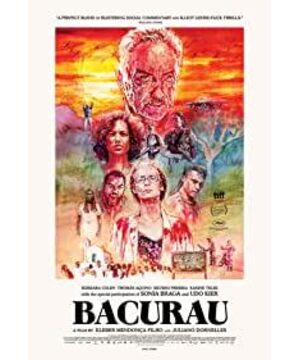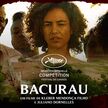This kind of fable personally feel that the focus itself is on the shallow metaphor, not advanced, but it has its meaning. Recently, I have also been exposed to the history of Brazil, and combined with the knowledge I have learned before, I roughly interpret some things that I think are reasonable.
The whole story is a double metaphor for the history of Brazil/Brazil status quo. The whole structure and many details of the story illustrate this point: the small village of Pernambuco is basically a metaphor for the people in the simple hinterland (Sertão). From there, the natural conditions are so bad. It is difficult for the government to control the existence of gangsters like cangaceiro, which makes many Brazilian literary works use it as a background, so that it eventually becomes a solid symbol of the Brazilian national spirit. The entire small village is in a state of orderly, self-regulation, self-sufficiency, and kindness. But behind it lies an extremely sturdy core. It is also the harsh environment that urges them to survive in this way. Pay attention to them. The fundamental reason for the conflict with the mayor is that the mayor cut off their water source, which is also a typical hinterland problem.
This small village reflects/interprets the Brazilians in two latitudes. We can first understand it as the aboriginal people before the discovery of the Portuguese. People here will be alert when strangers come. After all, they are isolated from the world, but at the beginning they will treat each other with courtesy and will not take the initiative to attack. They are not "robbers" (the black teacher was helping him at the beginning of the story. Family defense, Brazil is in chaos. People may do decent or dirty work in order to make a living, but they have never been "robbers" like invaders. As for why the village doctor came to scold the black old woman, And why is it 96 years old? I personally think that the director also has content here, but I didn’t understand it.) The spiritual experience of taking drugs is also something that has always been in the tropical rain forest. After the anti-killing began, collective decapitation was also It reflects the characteristics of cannibalism of the aborigines themselves (by the way, Teacher Longa also gives people a special feeling of Brazilian miscellaneous leather...), in short, it is not easy to mess with.
Secondly, put it into the contemporary context. At this time, you have to look at the villains. First of all, the mayor himself has a double meaning: the nineteenth and twentieth century want to control the hinterland rebellious/autonomous government, this is obvious; and it is well known now. The pro-American President Bolsonaro. And this group of American gun shooting interest groups refers to the invaders during the Great Discovery period (a tyrannical argument: in fact, the weapons and tactics at that time were not clever, the Portuguese were often hard to come by, a bit and the film must use old The guns should match), while hypocritically saying not to kill children and scolding themselves as Nazis, while killing them without shame, is the same as saying that they would civilize barbarians during the invasion. And if Brazil was plundered by colonists at the beginning, the position of this bully in the post-colonial period was given to the American emperor. It is well known that the United States is a major reason for suppressing the development of Latin America, and it portrays this group so stupidly. Naturally, it is also related to the imperialist tyranny. So, at this point in the analysis, we naturally understand the author's position: anti-Bo and anti-American, and the people are self-reliant. Of course, it also means Populismo, after all, Latin America is an old tradition. Of course, the old man who was finally locked up in the dungeon said, "Everything is just the beginning". One is to think of the colonists eventually incorporating the aborigines, and the other is a pessimistic prediction in the contemporary context.
Of course there are other interesting images, the intermediary roles of the two São Paulo people (the so-called "Latino is not white" and the differentiation of class/opinion), the "joy house" and magical technological elements interspersed with the plot and so on. In short, this The film puts a set of metaphors together like a lasagna. Of course, the central question is, is this a good film? As a bystander, there is a reason to stand at that angle, but I think it’s too clichéd from the perspective of Brazilians reflecting on themselves. After all, the movie does not give a truly reliable way out.
View more about Bacurau reviews










